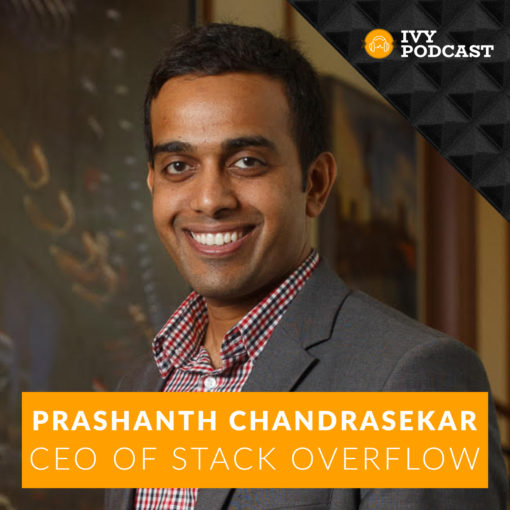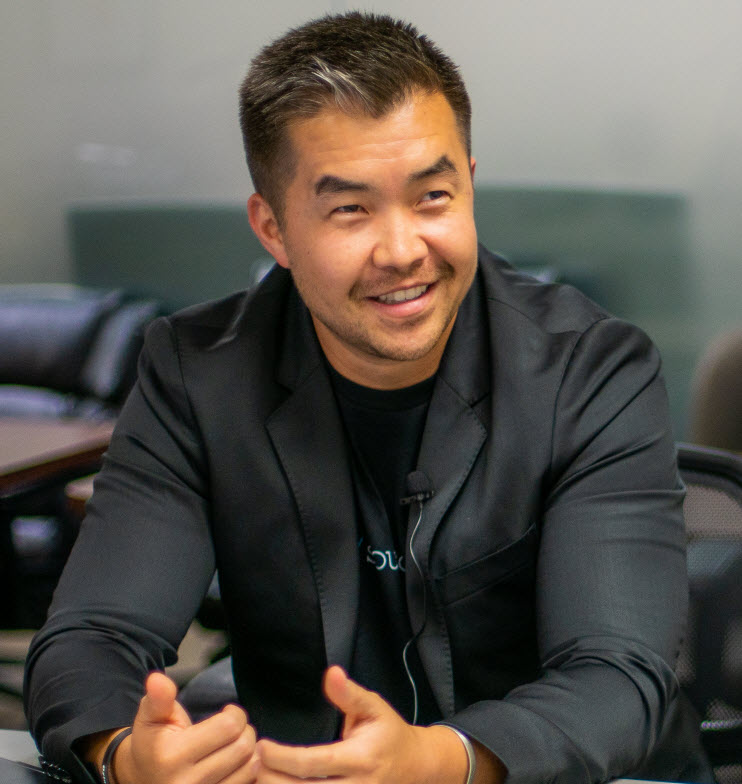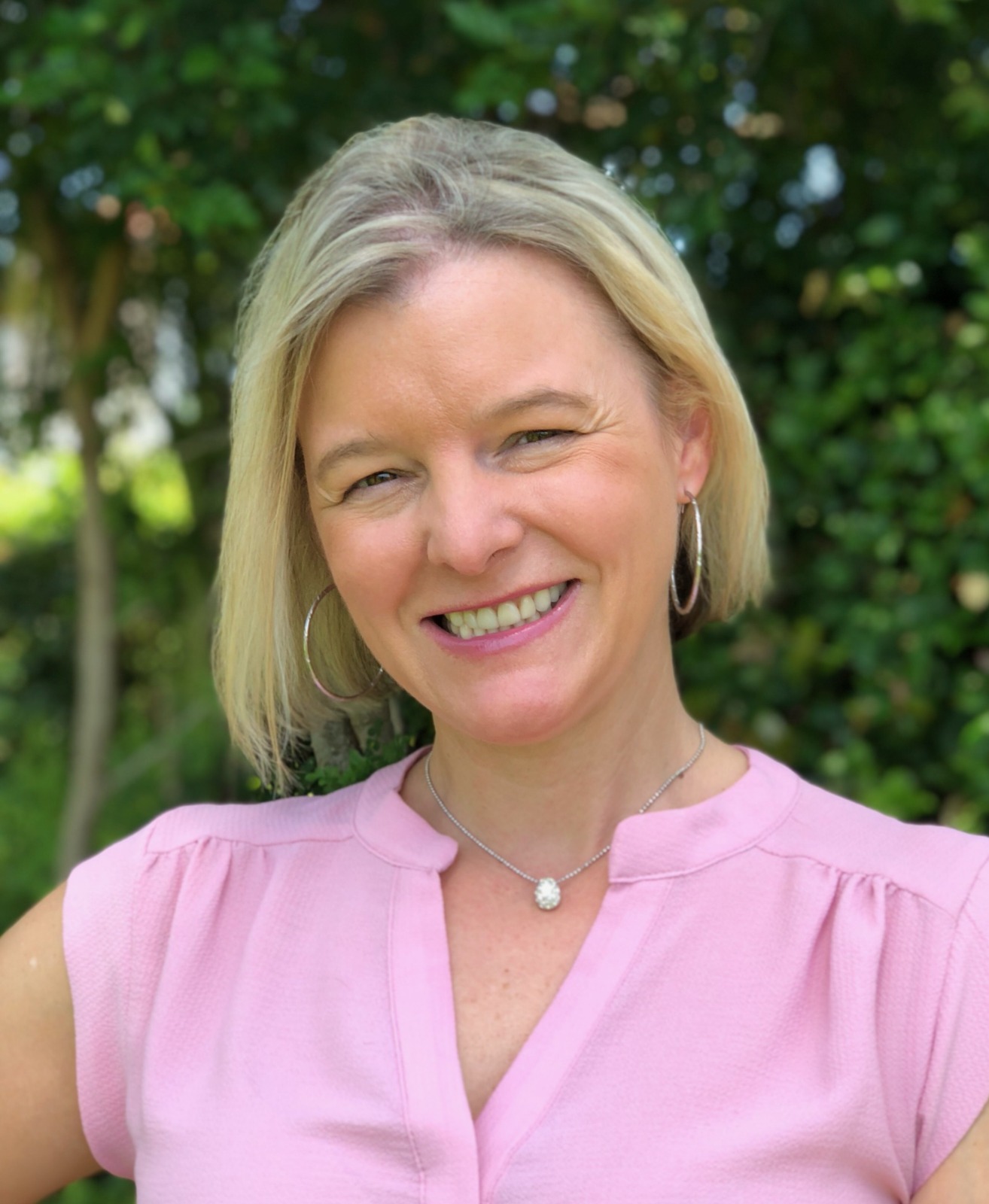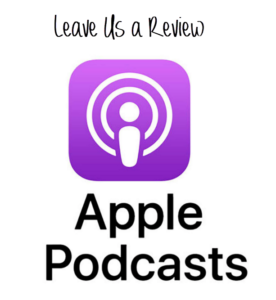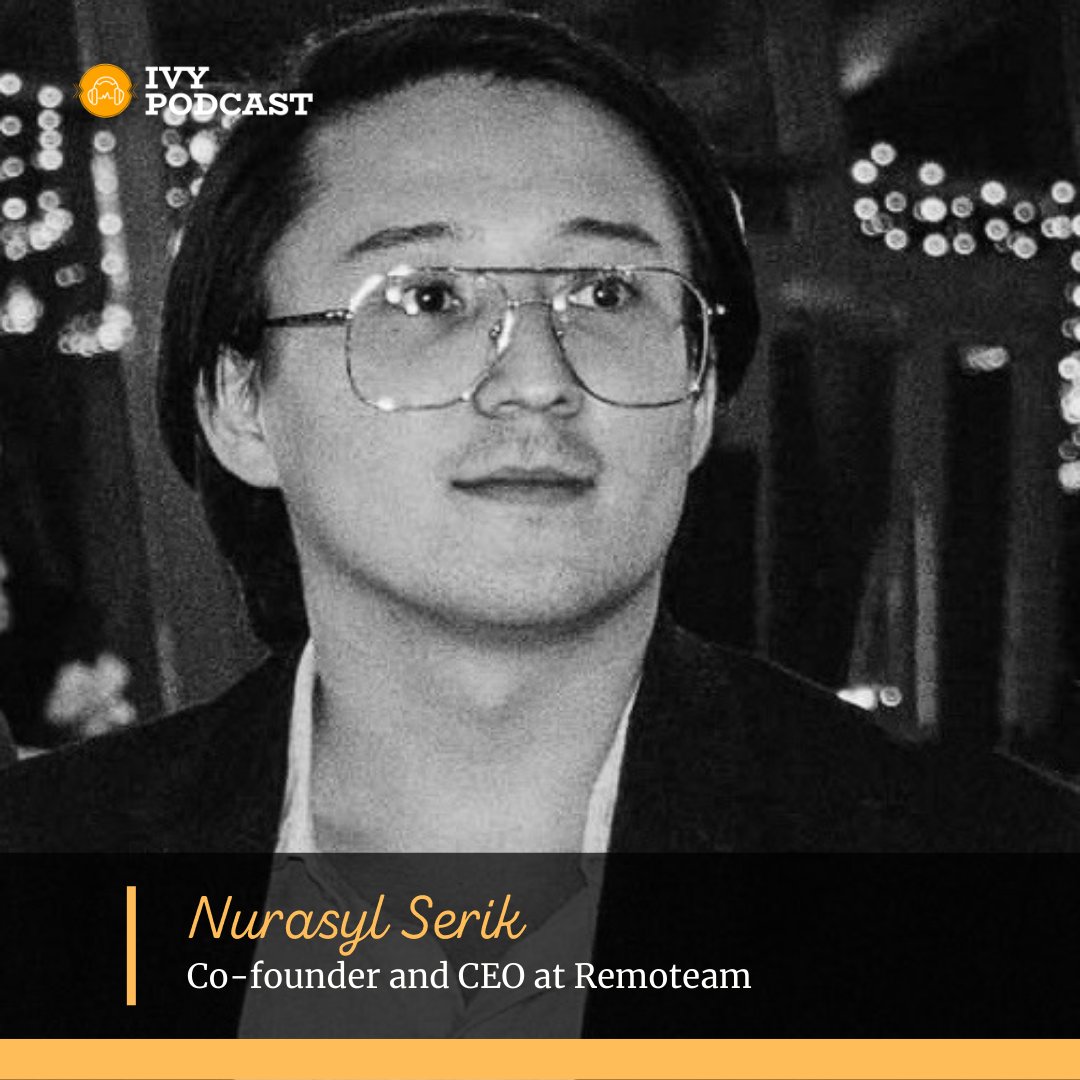
Nurasyl Serik is the Co-founder and CEO of Remoteam, global payroll and HR compliance for Remote teams. They provide Employer of Record (EOR/PEO) services for full-time employees and FREE contractors management & payment service in over 150 countries. Before Remoteam, he was the first Product Manager for a new division within JOB TODAY, the #1 mobile jobs platform in the UK and Spain where he developed a payroll system and executed the product vision, definition and go-to-market plan to achieve six-figure monthly revenue from 0 within 10 months. He is a product and remote work expert obsessed with understanding the customers.
Episode transcription:
[00:00:21] Cesar Romero: [00:00:21] Hey, everyone. Welcome to another episode of the Ivy Podcasts. If you are wondering about how to best prepare for the remote work revolution, that's happening in front of us, whether you are a professional or an executive, then this episode is for you. We're going to be diving deeper into remote work. What are some of the skill sets that you get developed? How have you built culture? And many other things related to remote work. And today I have the pleasure of having Nurasyl Serik, who is [00:01:00] the co-founder and CEO of a remote team. So thank you so much for being on the show. [00:01:07] Nurasyl Serik: [00:01:07] It's an honor to be in the show, thanks. Load point waiting guys. [00:01:11] Cesar Romero: [00:01:11] Okay. Absolutely. No, thanks so much for taking the time to get us started. Let's start with diving deeper, a little bit deeper into your background. I understand that you are someone that is a remote work expert and obsessed with understanding the customer. Where does that come about and how has that played out in your past experiences? [00:01:39] Nurasyl Serik: [00:01:39] Sure. I guess like, just say background wise, I'm originally from Kazakhstan. I've lived most of my life in the UK. I've studied there. I worked there. I've started a bunch of startups there. I guess the whole idea of how I went into [00:02:00] remote that was like five years ago. So we've been in a remote space for five plus years before it became a trend. So essentially me, my co-founder, and he's from Ukraine. So, we essentially were starting startups in the UK and then for us, because we're mostly bootstrap, most of our startups were a cost, so that was one of the things why we started being remote first. We kind of hated the idea of having to go into office. We either like in someone's house or flat, or just like remote. So we love that idea of flexibility that you can literally work from anywhere. What's the reason for actually being in the room, and then, because obviously we were from different countries, we were kind of looking to employ people from our own countries or different other countries. And then that's where we first faced the kind of challenges of employing [00:03:00] people remotely, essentially in terms of most of our startups, most of them failed, but we had one kind of successful one that we had to exit with. So it was fairly math, it's an AI master up. You take a picture of any math equation. It gives you a step by step solution within seconds. We have a hundred thousand monthly active users open up. So suppose the week, top 10 free education apps in the UK. So at the end we sold the US tech part of it, and we had a nice exit with that, and then essentially with that, knowing that we were all remote first companies, we always faced the challenges of how to hire people globally in a compliant, in the right way. And then we, in a way used, we were kind of our own customer. To be honest, we felt all the pains ourselves. We'll look [00:04:00] for a solution, we use some legacy solutions. And then what we hated about them was that they were super slow, they were well known tech savvy. They have lots of hidden fees, and then those are the things we thought like, okay, in the era of Gusto and Zenefits, like how can global peril be so painful? Why are there so many hidden fees in there? So that was like one of the motivations for us to tackle this industry and build something that we ourselves would love to use, and I mostly held positions of product. I love building products, understanding the customer pains. So yeah, and even into product, I kind of got accidentally because I studied accounting and finance, kind of a transition that I did not expect, but I always loved tech, and then I was always fascinated by that. I self taught myself how to code and then that's how I went into product management. And then later off to starting a bunch of our own startups, I thought maybe it's time for us to join another startup. So I joined a startup in London called Job Today. So for them, I essentially launched the need division. I was the first product tech person. I built the first MVP with our coders or developers with the designers. So I love knowing don't code status as well. And then essentially, then I assembled a team, that with whom we've built IT payroll in the UK. So that was our kind of first experience of understanding how to be in a CharTec plus building and payroll. And then later, and knowing having that experience on this to make the pains of the customer ourselves, we decided, okay, let's give it a try and build a global payroll. So that was kind of our background, how we went into this, there was a mixture of our skillset plus they experienced the pain points we faced ourselves. [00:06:11] Cesar Romero: [00:06:11] Thank you so much for that wrestle. And there are so many directions that we can take from here, before we dive into failures. Because I wanna talk about that. Because you mentioned that you fail a lot, so I'm definitely curious about that. But before doing that, let's talk a little bit about remote teams. What is the specific pain point that you're trying to solve? Like, who is the customer? Let's dive into that. [00:06:44] Nurasyl Serik: [00:06:44] Sure. So a remote team is in the global payroll and HR compliance solution and simple words. Let's say you have a company that is based in the US and you want to hire someone from the UK, China, Russia, India, any [00:07:00] country in the world, you have two ways to do it. Number one, you can go and set up entities in those countries, which is quite costly. It costs about 20 to 80K upfront, and then it's time consuming. It takes two to six months to set up an entity in different countries, essentially a subsidiary in their case. Number two, how they can do it, they can hire people as independent contractors or freelancers. So that is, I would say the most common way, how companies do that. But when you hire people as a contractor or freelancer, there are a few misclassification risks that they don't know about. Most of the customers that we speak to, they don't really know because they are just becoming a remote company, but essentially, if someone works for you full time and the person has a manager, that's all the kind of red flags that says this person is classified as a contractor, but whether it's a full-time employee and essentially you're [00:08:00] not paying the right taxes, they end up paying the right taxes. Any one of them, the government finds out or they input somehow it leaks in and then we'll have to pay penalties. You will have to pay all the taxes from the one and then, yeah. So in some severity cases, there might be some prison time, but I mean, it's a super interesting part where a lot of people don't really know how it works in how it should be higher than what kind of documents you need to kind of fill in and so on. So I guess for those reasons we exist. So what we did, we set up our own entities or through partners, we set up in these, in different countries in the world, and then we hired people on behalf of our customers. So that's called an employer of record solution essentially instead of them setting up an entity themselves or hiring person. As a contractor, they came to us and then with one click, we hired the person into our entity, and then essentially they will be working us up to us. They hired themselves. So we kind of liked to call yourself an extended HR partner. So we like to be the partner that actually helps them rather than just things they must have customers or that pain into this stuff. So, yeah. So when the customers come to us, they come with a problem of saying, Hey, how do I hire a person in this country, in that country? And then we tell them what is the best way to do it. [00:09:32] Cesar Romero: [00:09:32] I guess my point with that and I totally agree with you that it's it's much needed. And I was involved in a startup where. What do you think about this? When we started doing more remote work? We didn't think about if we were going to be compliant in other countries as we would hire more, more and more staff. So I can definitely see the need there to make sure that startups are compliant right. Because every country has their own rules and regulations around the workforce in general. So with this set, what are some other things that companies need to take under consideration when they're shifting towards remote work? We already touch on what remote teams do and help companies do it. But why are some of the other things that companies need to do or should do to ensure that they have an efficient remote workforce? [00:10:37] Nurasyl Serik: [00:10:37] Yeah. I mean, that is a big topic right now. So there are a lot of companies that are trying to coach people to be there, the right remote first company, there are lots of directions you take, but I guess like for me, myself, there are three main things that I look at in our own company. Number one is writing everything down. So I think. When you're a remote company, you don't have a privilege to go in the office and come to someone and say, Hey, can you explain to me what this is, so write everything down. So someone, anyone you onboard or someone in your company can have the access to that knowledge you have or any specific information they're looking for. So it's like a directory. Within your company and you can access any time. So that is super important. I would say I'm writing everything down for every single employee you have, they should write down on their own and you should write down on your own. And then it will have a library of knowledge in your company that could be passed to anyone you want more. And they can go in and read about different stuff. So I think that helped us in the previous companies. And then now in our remote team, essentially for us was a, we didn't write anything. And then you have to sync up with everyone and explain to them how it works. Just like a repetitive process. So if you're writing [00:12:00] once yes, you might like, it might not be that, I mean, like not everyone is a good writer or not, you don't feel like writing about it, but if you do it once and then it kind of helps you in the future rather than telling it to someone over and over again. And then number two for me would be to adapt an ACE in meetings or Oral Async, because essentially meeting with someone on the calls all the time is tough because of the time zones, and then people need to kind of either wake up at 1:00 AM or, or like 5:00 AM or go to sleep. And then, well, maybe their work time starts late. So we essentially for those reasons, I feel that async meetings and the boast. And then to be honest, that kind of forces your company to, not become the people, forces your people to be kind of more effective because they're not waiting for the meetings. They're not waiting for anything else. They just do it through the chat or like make sure that everything is async secret way to boost your efficiency in the company, would say, and then the final part, I would say culture. So there is a good saying that culture eats strategy for breakfast. Then I think it's absolutely true. In our case, like, culture is a big thing. So we try to adopt a culture from delivering happiness. Tony made a good one, a good cook. And then I think like when I read it first, I fell in love with the whole ideology that he brought to the world. And then that's how I see the culture. And then, I guess like there are different ways [00:14:00] we can talk about the culture, how to develop it. We could go into it if you like, if not, we can talk about it. [00:14:07] Cesar Romero: [00:14:07] Yeah. I know that that was going to be my followup to this because culture in remote teams is big. And yeah, there, obviously, there are some challenges to building a remote culture, right? Because you don't have the in-person water coater conversations. So let's dive into it. Like what are some of the key, I guess, key strategy you or tactics that you have implemented to build that culture in a remote team. Or let's start with how would you define culture? [00:14:51] Nurasyl Serik: [00:14:51] That's it. That's a good question. So culture, I guess like it's a cornerstone [00:15:00] ideology that your team. In my case, I believe we set up some ideology like kindness, customer obsession, and then cost optimization. One of the three cornerstones to be in everyone, is kind of going into that direction. But what would I say is our agricultural benefits? And then definition in our company. [00:15:34] Cesar Romero: [00:15:34] I think that's great. Right? It's about being aligned right with the values that you want to present as a company, as a professional. So what are some of the, I guess, challenges that you have experienced, when trying to build culture, right? Like how do you make sure that everybody is aligned with the culture of a company? [00:15:58] Nurasyl Serik: [00:15:58] [00:16:00] That's definitely tough. I think with the remote company, that's definitely tough because you don't have that personal touch. You don't have that kind of meetings. So I think with us, what we try to do, we'll try to build up some activities and then I feel that the activities might actually be one of the things that boost the morale of the team and then get them to know each other more and then eventually help the culture. So I think, the culture should be built via activities, yearly meetups and benefits. So those are the things that could kind of help to grow it. I know like, I tend to like one particular activity where. You are randomly assigned one-on-one with someone on a weekly basis. Like it just goes on them, [00:17:00] people. So we love that because you don't have to specifically go and talk to someone, but rather it's just randomly. You get one-on-one with someone and you are kind of forced to talk to the person, but at the end, it turns out to be great because you get to learn about them more about their challenges, and then that's how everyone helps each other. [00:17:23] Cesar Romero: [00:17:23] I really love that. You mentioned that because one of the things with remote work is loneliness, right? People have been reporting like more and more feelings of loneliness. And I think one of the ways to mitigate that is by having this type of activity where you get to have a call with your coworker, with a teammate and not necessarily talk about work, but talk about life too. Like, what do you like, what did you like to do in your free time? Right? Like, what do you like to eat? Things that seem trivial, but we build relationships and build trust. So I really liked that. They mentioned that because, yeah, loneliness is an epidemic, right. And now that things are shifting more remote, I feel like we have to make a more conscious decision of actively trying to connect with our teammates. [00:18:27] [00:18:32] Nurasyl Serik: [00:18:32] Right. I think that's a big thing. Loneliness is a big one right now, and I think mental breakdowns are happening because of that and overall, I think it's really tough to be at home. You feel locked down, I guess like the ideal world of remote work is that. You don't have any restrictions of where to go. You can work from the, I dunno, from the park and the beach, from wherever, but especially this time in 2020 it was because everyone was locked in into their homes, maybe smaller apartments. It's really tough. Well, you feel like you're in a prison? [00:19:13] Cesar Romero: [00:19:13] It does. It does, luckily I do have a window here, so with a great view, that helps me out a little bit. I want to shift gears here and ask you, because they know you have been doing remote work even before remote work was called, even before this shift. And last year we're covered a lot of people got taken by surprise, right. With everything coming in remotely, and people are struggling with that adjustment and companies too. Right? Like what would your advice be to someone that is not used to remote work and it's trying to [00:20:00] adapt to this new, I guess, new, normal, in terms of skill sets or things that they could do to be a better remote teammates. [00:20:15] Nurasyl Serik: [00:20:15] Yeah, I think that is a very good question because I, myself. Struggle to be a good remote teammate in the beginning, and then probably still learning a lot of things, but overall, I feel like there are lots of directions. We can obviously take a buddy. I like to highlight two most important things that helped me. Number one is writing skills. So you have to boost your writing skills because when you sin or when most of this stuff is in writing, when you write something, it could mean. Different things and then people can perceive it differently. So [00:21:00] if you learn to write concisely precisely, and that would help a lot. So writing skills, I would say me personally, it helped a lot. So obviously not. I know I wasn't a good writer. I was writing some stuff that people perceive in a different way. They did something different. I was like, shit, I meant something else. So, yeah, so I think that is very important as a scale. Number two, I feel, it's another, the second big one that I'm still struggling to cope well is self-management meaning time management, meaning managing your work-life balance, all of it together so that it is a big topic and a skill. Because there, if you're not managing well, there could be burnouts and loss of motivation. Your productivity [00:22:00] goes down and then all the things that are dependent on that. So I think like, really, really kind of thinking about the coals. So like for example, if you have different meetings, different goals, it's tough to find a time for deep work. So sometimes like you have so much destruction and you feel that your day is not done, like, because you haven't done anything, you just fit in the clothes. So I definitely recommend people to think about self-management the way it kind of helps their own lifestyle. So for me, for example, I block out days and then kind of times in each day that I don't take any calls. I just work. And I don't look at the emails. I'm just unavailable because I'm doing some work that I need a hundred percent concentration and then managing yourself to do all of that. Plus also thinking about the work-life balance, making sure that sometimes it's only 3:00 PM. When you feel like not working for a couple of hours, don't I know it feels kind of wrong, but because people are used to office hours, like nine to five, nine to six, they're like it's 3:00 PM. I got to go back to work, but sometimes I feel like 3:00 PM. I don't feel like working for the next three hours. I go and take a break. That's fine. You should do it. Like, definitely because honestly, like one of the things I felt when I was in the office plus working remotely is that when you work remotely, the work never ends. You end up doing more work. So it's fine. So if you feel, yeah, those three hours at 3:00 PM to 6:00 PM feels weird. Yes, it does. But let's take a break and do something. This stuff. So we definitely, that one was a kind of boost for myself, honestly. Like there were days, like I know I wake up late, but I still do stuff. So I think you should just try and find your balance. [00:24:10] Cesar Romero: [00:24:10] I really love that. You mentioned this, because first let's start with writing, which is just being a good communicator. And it sounds like a basic skill, but I'm surprised how many people miscommunicate in writing or either in a speaking format. And I was laughing internally because I was watching a YouTube video by Jordan Peterson, where he gets asked this question about skill sets. And he basically told the students to learn to read, learn to write, and learn to speak. But recently he was saying that it was because if you are able to communicate your ideas in a way that are [00:25:00] clear, concise, and influential. The people receiving your message, then you're going to be someone that most likely are going to succeed and it sounds so basic, but it's so true, and the second part that they mentioned on, you to me had this report of 2021 trends and the number one was, I think it was called self-mastery. And the fact that they mentioned that just makes me happy because it is true, right. Burnout, not knowing your boundaries, what you need in order to be productive. I saw something, I think West Cow, she was too personally responsible for pioneer in the alt MBA with Seth Godin. [00:26:00] And she tweeted yesterday of how she was shocked that 96% of people spent all of their days in meetings and they start actual work after five. I think that's something that we need to be aware of. Right? Like, are these meetings necessary? Is this something that could be done in email or any other way? When would that say, just to shift gears here a little bit, what are some of the tools or apps that you use on a day-to-day basis to manage remote work? [00:26:41] Nurasyl Serik: [00:26:41] I guess like we are ourselves still exploring different apps, different tools. So I mean, we use Slack, obviously we use Notion, I think Notion is a big thing. So it's kind of, we use it for all the knowledge sharing. So most of our data, most of our company information is in Notion. So that director I talked about, so we use JIRA. And then I guess in terms of self kind of tracking. You can use different tracking apps to track your time where you need deep work. You could use some, I personally use different kinds of apps to listen to some calming music too. I can go into my deep work. So, those are the things. Oh, the most important tool that you should use. It's a global parallel compliance of course compliance and your business made sure that that is the number one priority. Like those are the main things we use, but I get nowadays, they're like so many tools that are popping up every day in terms of remote. I think there's like so many of them, like you just. Should find a balance. I think for me, also, I'm not the kind of person where I want to have different tools for different stuff. I like to minimize extra stuff. So I like to have as minimum as possible, the tools. So not everyone jumps in different places because it's just going to mess. So, what we have, even in our kind of organization, we try to limit the tools that people can use, because like, imagine tomorrow comes, someone else is like, Oh, I know this still is best. So he ended up starting. Another one comes in is the other tool. So it just becomes a Frankenstein and you'll have to use different tools. So, we try to minimize the tools. And even though like, Well, let's say Notion doesn't have some kind of tracking system for tasks, for issues and so on and so forth. We try to even like to use one single platform. So even though that there will be less functionality rather than pure software for a particular purpose, would try to just stick to one and then see how it goes. [00:29:23] Cesar Romero: [00:29:23] I like that. I think Nordstrom is a big one and one that I'm still getting my feet wet, because you can do so many things with Ocean, and I agree with you, right. There's tools for everything. And like there's so many tools out there and I think you can easily get overwhelmed. So I'm a big believer in limiting the number of options that they have, especially to get your work done. All right. So let's shift gears here because I promised at the beginning that we're going to dive into failures and I want to make sure we do that. How have your failures set you up for success and what is your favorite failure? [00:30:15] Nurasyl Serik: [00:30:15] All defenders said that, I guess my favorite failure is not being able to get into investment banking or banking overall. So as I said early, I studied accounting and finance. I wanted to go into banking, but things didn't work out and kind of there were two main reasons. My passion and my interest was doing tech, but I felt back in the days, I felt that investment banking is the right place to be. So as a young person that wants to, I know, Excel in his career, earn lots of money and then so on and so forth, I felt that that could be the right direction. But then things [00:31:00] didn't work out. I felt bad at first that I couldn't get into investment banking. But then I felt that that's right. Failure set me up to where I am at the moment, because it just shifted, it just closed my path to that. So I didn't go into the banking industry overall. So I just shifted to tech. And then that was like, I would say one of the ways for me to be where I am. [00:31:35] Cesar Romero: [00:31:35] Yeah, no. I think sometimes the things that do not work for us end up being the best thing that never happened to us. Right. Because they are like a redirection into what you should be doing next. All right. But how do you determine that? I guess there's a balance, right? Because I'm a believer in going after what you want. And if it doesn't work out and try again or try a different strategy, never give up and never give up. But there's another aspect of that is recognizing this is not something I'm going to do, but I think what's, so what made you decide that of not being insistent. No, this is, I studied this and this is what I need to make happen. What was the process for you internally? [00:32:26] Nurasyl Serik: [00:32:26] That is, I think, a very good question because overall, I feel that even in startups, like when you start different startups, they say to yourself, you got to go out. But sometimes it's like, I think like most of the people who start startups, they have that problem with delusion illusion. They'd feel this is the right way to go, but it is really, I don't know, like a pro guide knows myself, if there is a way to actually determine if this is the right or not the right way. But for me, I just put some criteria. Is it as it's gonna make it work or is it something that isn't going to succeed? So what is right? Checks for me. So I kind of like having a checklist or if this is the right thing, should I persevere or should I stop on that? And then what are the different ways that you can peak? And then in particular about the finance, I felt for me that the decision process was in a way that I felt that this is potentially the right one way to go, but I don't feel that I might be kind of the right person for it. And I didn't have the passion to say that I want to learn more of it everyday. I'd rather had a passion to think about tech, different startups, building the websites, learning a bit more about code. So I had that, but I guess like overall, you just got to think about your gut feelings plus the passions. Like, is it something that you will do regardless of if it's going to break, make you money or regardless if you're going to be happy about it. [00:34:22] Cesar Romero: [00:34:22] I think that's a key there, right? If it's going to make you happy, because if you're not happy, then it's not worth it. Right. And I think it takes a lot of courage and a lot of internal work to recognize when something that you tried. That you put money and time and effort into it. It's not going to work out or didn't work out, right. Especially for anybody in the audience that is just getting started in their career. If you're listening to this, I think it's important to go out there. Try things, experiment. And then learn from that, right? If it's something that resonates with you, keep trying. If it doesn't then listen to that gut intuition, whatever you want to call it. Because we're not taught to do that right. In school or in society. We're not taught to listen to our God. It's just like, what's your next achievement? What's the next thing that you're going to work on and I think, yeah, going back to what you said, happiness is the goal, it's what we're trying to achieve. [00:35:38] Nurasyl Serik: [00:35:38] Awesome. Yeah, absolutely. Honestly, I agree with you. I think you made a good point. It's very important to understand if this is the right path or not. And then definitely being happy, making sure that this is something that you can do, but at the same time, I think, for me personally, even, I really think that sometimes when the things happen, even in a wrong way, I just have a trust that this is probably the right way. [00:36:12] Cesar Romero: [00:36:12] Yeah, exactly. Right. So somewhere where things are working out for you. Awesome. So that's the question here before we wrap this up, I always like to ask. I guess, what are some of the content that you are consuming? Whether it's book, courses, podcasts, what are some of the things that keep you learning these days? It could be a course, a book or a podcast, anything that you're reading, listening, or watching. [00:36:56] Nurasyl Serik: [00:36:56] So mostly now I read stuff that helped me post one skill, the other. So right now I'm boosting my sales skills, reading a book called Sales Triangle, and then overall, I think, when you are a startup founder, it usually happens that you get into a problem and you're like, okay, I don't have experience in that. So why don't I go and learn more about that? Yeah. So my favorite one way of learning is rather books. I wouldn't, I would say that podcasts, I listened to them, but not that often. I rather go and read books and then that's, I think my way of learning, courses. I don't feel that it was efficient for me, because I just like what I do with the books. I like, I skimmed through, I tried to find the information that I'm looking for and I got the whole idea, but the course is too long. Takes too much of your effort on podcasts. Also, you sometimes don't know who to listen to, where do you find any answers there? So it with the books is more or less clear. There are books that kind of help you do X or Y. And then you kind of go and learn the fundamentalists in your play in your own way, but having that fundamental, because as you said, like, these things are never taught either in school, in university. And then, you got to go and learn it somewhere, but the other interesting fact is that I think having the right mentors, for me, also helps. So sometimes I just go and ask them other than going and looking for a book back and have me do that. [00:38:49] Cesar Romero: [00:38:49] That's awesome. And a couple of things here, I'm a little sad that you didn't mention the Ivy Podcast to listen to. Just kidding! I think sales, right? Learning sales. It doesn't matter what you do or who you are. I think learning sales it's extremely important. So I'm happy that you mentioned that, and the second thing I wanted to do before I knew we got to wrap it up, but I don't want to leave because you mentioned something important asking mentors, what would you recommend or how would you approach asking a mentor? Because I know there's a right way and a wrong way to ask. What would you recommend to someone reaching out to a mentor? How would you go about it reaching out? Meaning they are looking for a mentor or meaning they have a mentor and they are asking the question, looking for a mentor, making them ask how would you go about that? [00:39:54] Nurasyl Serik: [00:39:54] I guess like looking for a mentor is a tough one to mentor you, but I guess. Being brave here. So sometimes when people don't ask, they don't get, so we just go and ask, you never know if you are either going to get yes or no, but that's fine. They said, no, go ahead and go and look for someone else. So, yeah, so my life I've just randomly asked the person that like, okay, why not? Let's give it a shot, let's give it a try. But in the right way of asking, obviously. I mean like there is stuff that you can find out yourself so different in us, like rarely. And the kind of thing that you can Google. [00:40:46] Cesar Romero: [00:40:46] Exactly. Right? You can Google it. [00:40:52] Nurasyl Serik: [00:40:52] Don't ask me, why are you essentially Googling it? I mean, those are the simple principles, but overall, I mean, when you have a mentor, I guess, like it's more of a conversation style. It's not like you only go to them when you have a problem, but you keep in touch, you just talk and then. Here and there, it just pops up different questions in the let's just talk about it, but it's not like you only call your mentor when you have a problem. So it's more of a general catch-up and learning about life, learning about their love in your life. And that's pretty much it. [00:41:26] Cesar Romero: [00:41:26] I love it. I love dimension, just ask, make the ask. You can go, you can either do, get a yes or no. Because a lot of times we suffer in our mind before we even do the action. So, and I like that, you mentioned it's a relationship, right? Like you build a relationship. It's not just transactional. Right. And I think that's my biggest mistake people make is making it a transactional relationship where they only reach out when they need help. So build those relationships, because that's what this is all about. No, that's all. Thank you so much again for coming on the show, sharing with us a little bit about your background, your insights into remote work and how we can ask professionals and executives better prepared to embrace this revolution that it's already here. Right? And I don't want to say it's coming because it's already here. And I would love to follow up. Do I know the episode down the road, see where things are at, but for now this is it that we kind of wrap it up. Thanks so much. Appreciate you. [00:42:40] Nurasyl Serik: [00:42:40] Thank you, Cesar. It was a pleasure talking to you, it was really good. Fun. So thanks so much. And then I guess from now on, I'm going to listen to more podcasts.
Welcome to Ivy Podcast! On this Executive Leadership Podcast we interview top executives from Fortune 500 with a focus on strategy, innovation, negotiation and everything about leadership.
Our Podcast for Executives features Thought Leaders who share practical insights for effective leadership, continuous innovation and strategy execution.
Ivy Podcast is a rapidly growing Executive Podcast, which covers topics like Hiring and Retention Strategies, Talent Acquisition, Innovation, Digital Transformation and much more.
On this Leadership Podcast, you will find conversations with the most accomplished executives from Fortune 100 companies. We aim to cover a broad range of industries and create a learning platform for the most ambitious and high potential professionals who are looking to learn from the most accomplished Executives on this Business Leadership Podcast.






